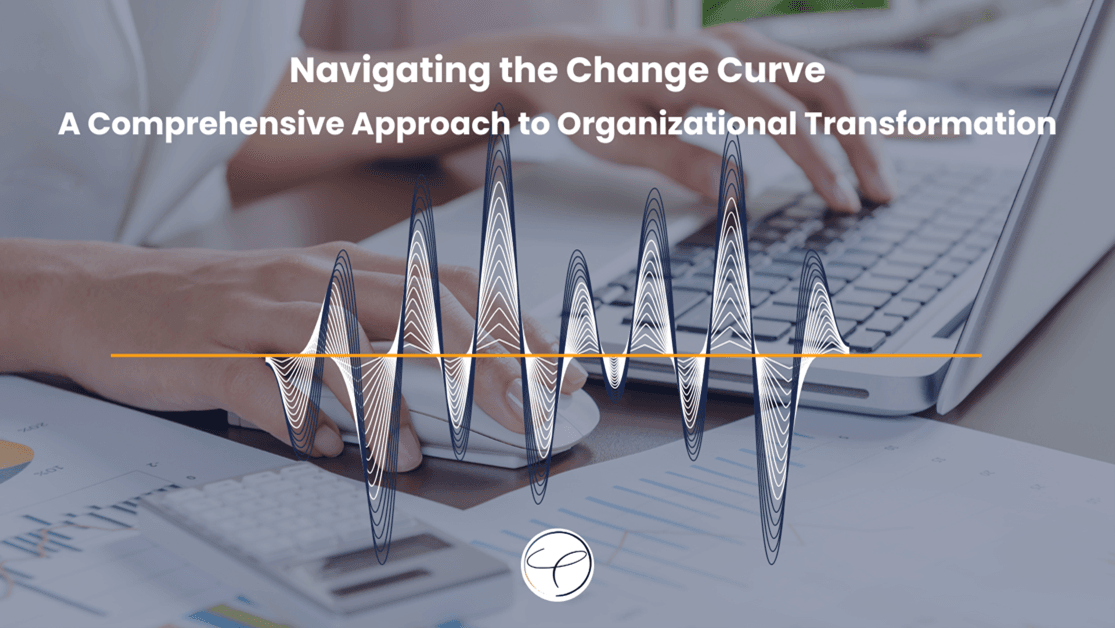

Change Management Blog
Change Management in Digital Transformation
March 13, 2023
Time to Read: 3 Min

In the digital age, the implementation of enterprise technologies such as ERP or SCM software represents a pivotal moment for any organization. While the technical aspects are often the focal point, the true catalyst for successful digital transformation lies in effective Organizational Change Management (OCM). This article delves into the nuances of OCM in the context of digital transformation, emphasizing the critical role it plays in ensuring a smooth transition and maximizing the return on investment.
The Role of Change Management in Digital Transformation:
There is a necessity of a committed focus on OCM in preparing the workforce for such changes to ensure a smooth transition.
In the journey of Organizational Change Management, particularly during large-scale digital transformations like ERP implementations, the measurement of success is as critical as the execution of the change itself. It's not just about getting to the destination; it's about understanding how well the journey is navigated. This understanding is pivotal for stakeholders who may be skeptical or curious about the relevance and impact of OCM.
It is a committed focus on Organizational Change Management in preparing the workforce for such changes to ensure a smooth transition. By tracking specific, meaningful metrics, organizations can not only validate the effectiveness of their Change Management efforts but also identify areas for improvement.
The following section outlines six core metrics that provide valuable insights into the success of OCM initiatives. These metrics have been carefully chosen to reflect the multifaceted nature of Change Management, encompassing aspects like employee engagement, feedback, system adoption, and the overall return on investment. By monitoring these metrics, organizations can gain a comprehensive view of their OCM's effectiveness, ensuring that their Change Management strategies are not just felt but quantifiably successful.
Measuring the Success of Organizational Change Management. Key Metrics to Consider:
Employee Engagement: Active engagement levels, participation in project activities, and retention rates.
Measurement: Track participation in training sessions, workshops, and other change-related activities. Assess employee involvement in discussions, feedback sessions, and project initiatives.
Importance: High engagement levels indicate that employees are not just aware but are actively participating in the change process. Engagement is a strong indicator of a workforce that understands and supports the goals of the change.
Employee Feedback: Gathering and utilizing employee feedback to refine communication plans and system adoption.
Measurement: Collect feedback through surveys, interviews, and focus groups. Analyze comments and suggestions related to the new processes or systems.
Importance: Feedback provides direct insight into employee perceptions and attitudes towards the change. It helps identify areas that need more attention and allows for adjustments in the Change Management strategy.
Help Desk Calls and Support Requests: Monitoring support questions to gauge the effectiveness of end-user training.
Measurement: Monitor the volume and nature of queries and issues reported to the help desk after implementing the new system.
Importance: An increase in help desk calls can indicate areas where employees struggle, suggesting a need for additional training or communication. It’s a direct measure of how well employees are adapting to the new technology or processes.
System and Process Adoption: Assessing the usage and proficiency of new systems and identifying any revert to old processes.
Measurement: Utilize system analytics to track usage rates and adherence to new processes. Observe if employees are bypassing the new system or combining it with old methods.
Importance: This metric assesses the practical application of the new system or processes. High adoption rates signify that employees have transitioned effectively, while low rates may highlight resistance or confusion.
Adherence to Project Plan and Timeline: Investigating project delays to identify issues related to organizational change.
Measurement: Compare actual project progress against the planned timeline. Note any deviations, particularly those related to Change Management activities.
Importance: Timely implementation reflects effective Change Management planning and execution. Delays can signal resistance, lack of resources, or insufficient communication, indicating areas for improvement in future projects.
Benefits Realization and ROI: Correlating OCM activities with ERP benefits realization and return on Investment (ROI).
Measurement: Evaluate the achievement of defined project benefits and ROI post-implementation. Link these outcomes to Change Management activities.
Importance: This metric is crucial for understanding the financial and operational impact of the Change Management efforts. Demonstrating a clear link between effective OCM and positive ROI can validate the importance of investing in Change Management.
These metrics offer a comprehensive view of how to measure the success of OCM, providing a multidimensional approach to evaluating its effectiveness. By closely monitoring these metrics, you & your organization can gain valuable insights into the impact of your Change Management initiatives, enabling continuous improvement and more successful future transformations.
RelatedBlog Articles



